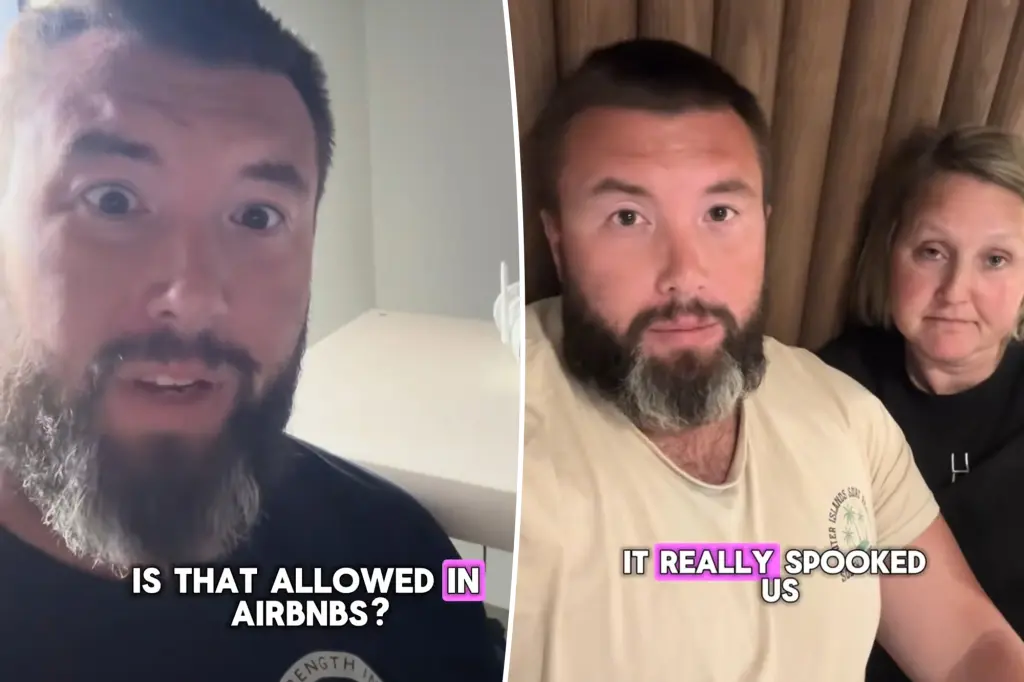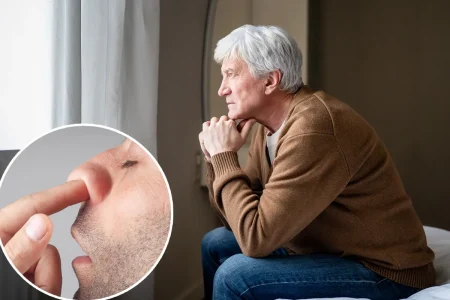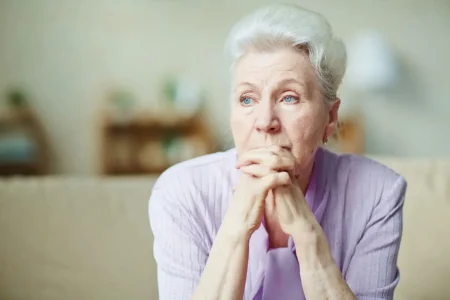Family’s Unsettling Discovery in Perth Airbnb Leads to Hasty Departure
When Kriss and Kate Hardman checked into what should have been a relaxing family getaway in Perth, they never expected to become the center of a privacy controversy that would eventually reach the highest levels of Airbnb management. The family of five had just settled into their four-bedroom accommodation near Perth’s CBD when they noticed something disturbing: a security camera with a blinking red light pointed directly at the living area where they and their three children would be spending their time. “It’s a nice place, but there’s one thing I’m not sure about,” Kriss said in a social media post that would later go viral, showing footage of the camera. “Is that allowed in Airbnbs? Is that standard practice? I don’t think it should be allowed.” This unsettling discovery prompted an immediate decision to leave the property, prioritizing their family’s privacy and sense of security over convenience.
The Hardmans’ experience highlights the growing tension between property owners’ security concerns and guests’ privacy expectations in the sharing economy. After discovering the camera, the family made the difficult decision to abandon their booking and relocate to a hotel, despite the inconvenience and potential additional costs. “The safety of our three children was what meant the most to us,” Hardman explained in a follow-up video. The couple’s initial interaction with Airbnb seemed promising, with the platform offering to find them equivalent accommodation and cover their hotel stay in the interim. This response aligned with Airbnb’s official policy, which prohibits hosts from installing security cameras or recording devices that monitor indoor spaces in their properties, regardless of whether these devices are operational or not.
However, what began as a straightforward customer service issue soon became complicated. According to the Hardmans, communication with Airbnb deteriorated once the potential costs of securing comparable accommodation in Perth became apparent. “They went quiet,” Kriss claimed, suggesting that the financial implications of their situation had caused hesitation from the company. This communication breakdown left the family in limbo, uncertain about their accommodation arrangements and financial responsibilities during what was supposed to be a relaxing vacation. The situation underscores the challenges that can arise when policy meets practice in the world of short-term rentals, particularly in cases involving privacy concerns that aren’t explicitly covered in booking agreements or when replacement accommodations come at premium prices.
The turning point in the Hardmans’ ordeal came not through traditional customer service channels but through the amplifying power of social media. After sharing their experience online and receiving significant public support, the family reported that their case finally reached “the highest level of Airbnb’s management.” This escalation resulted in a satisfactory resolution: “It got us a coupon that covers us well and truly what the property costs. They got us an alternate property in a similar location, and they’re reimbursing everything,” Kriss explained to his followers. The family’s experience reveals how social media has become an essential tool for consumers seeking resolution when traditional customer service channels prove insufficient, effectively serving as a modern form of consumer advocacy that companies increasingly cannot afford to ignore.
In response to media inquiries about the incident, an Airbnb spokesperson confirmed the company’s stance on indoor surveillance, stating unequivocally that “hosts are not permitted to have security cameras or recording devices that monitor indoor spaces in homes, even if they are turned off.” The representative also outlined the company’s response to the Hardmans’ situation: “Airbnb has provided the guest with a full refund and assisted them in rebooking alternate accommodation.” Additionally, they highlighted the platform’s safety resources, including a 24-hour safety line available to all users experiencing safety-related issues during their stays. This official response emphasizes Airbnb’s commitment to guest privacy and safety, at least in principle, though the Hardmans’ experience suggests that the implementation of these policies may sometimes require additional pressure to be fully realized.
While the Hardmans ultimately received the support they sought from Airbnb, Kriss expressed disappointment that it took public pressure to achieve this outcome. “It’s a shame that it took the power of social media to reach Airbnb for them to do what is the right thing,” he remarked, pointing to a potential gap between the company’s stated policies and its initial handling of their case. This sentiment reflects broader consumer concerns about accountability in the sharing economy, where traditional consumer protections may be less clearly defined than in conventional hospitality settings. The Hardmans’ experience serves as a cautionary tale for travelers using short-term rental platforms, reminding guests to thoroughly inspect properties upon arrival and familiarize themselves with platform policies regarding privacy and surveillance. It also highlights the evolving expectations around privacy in shared spaces and the increasing importance of transparency between hosts, guests, and the platforms that connect them in our increasingly connected world.














